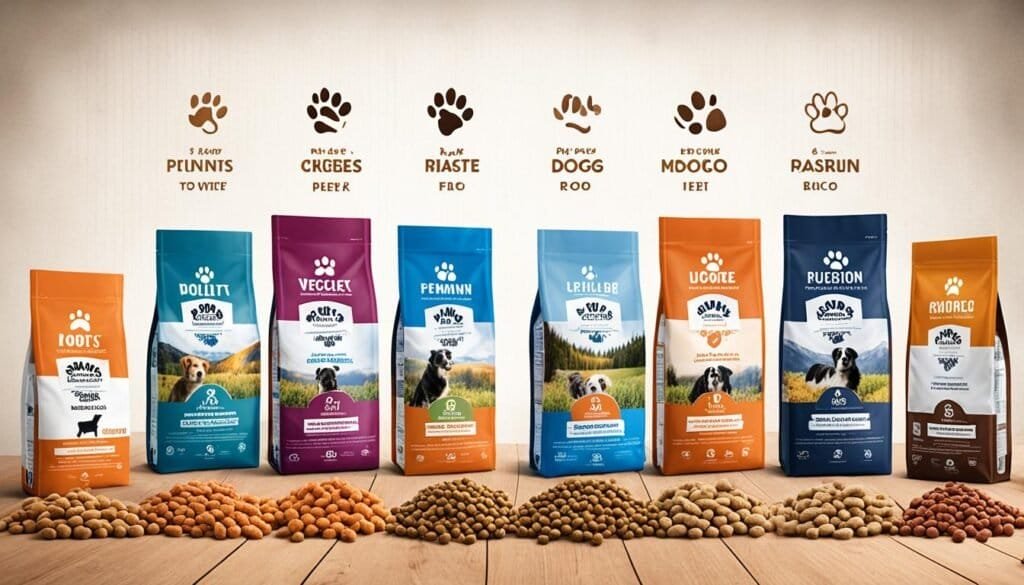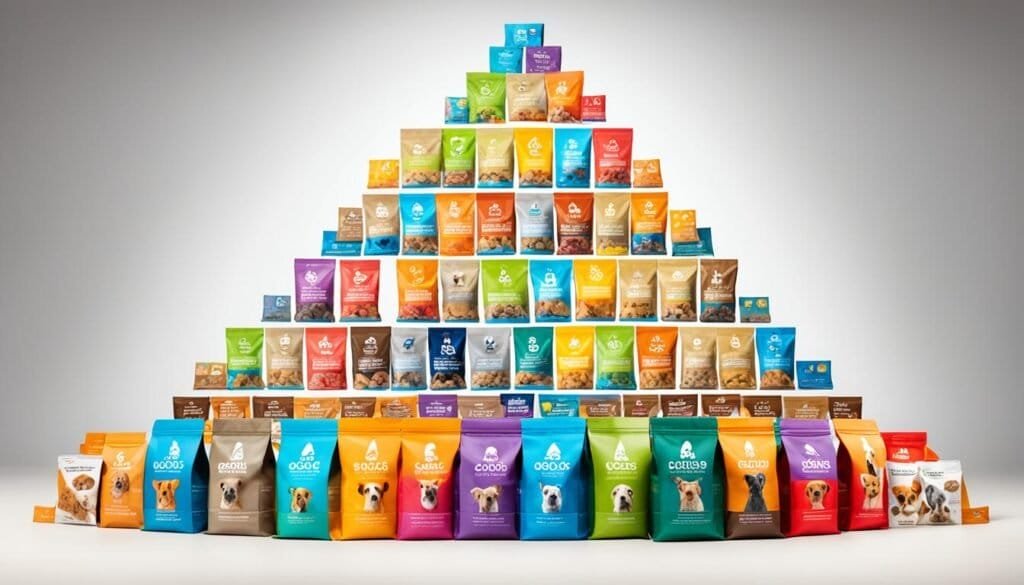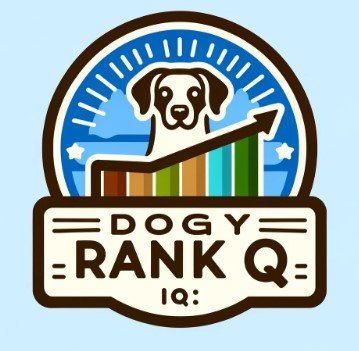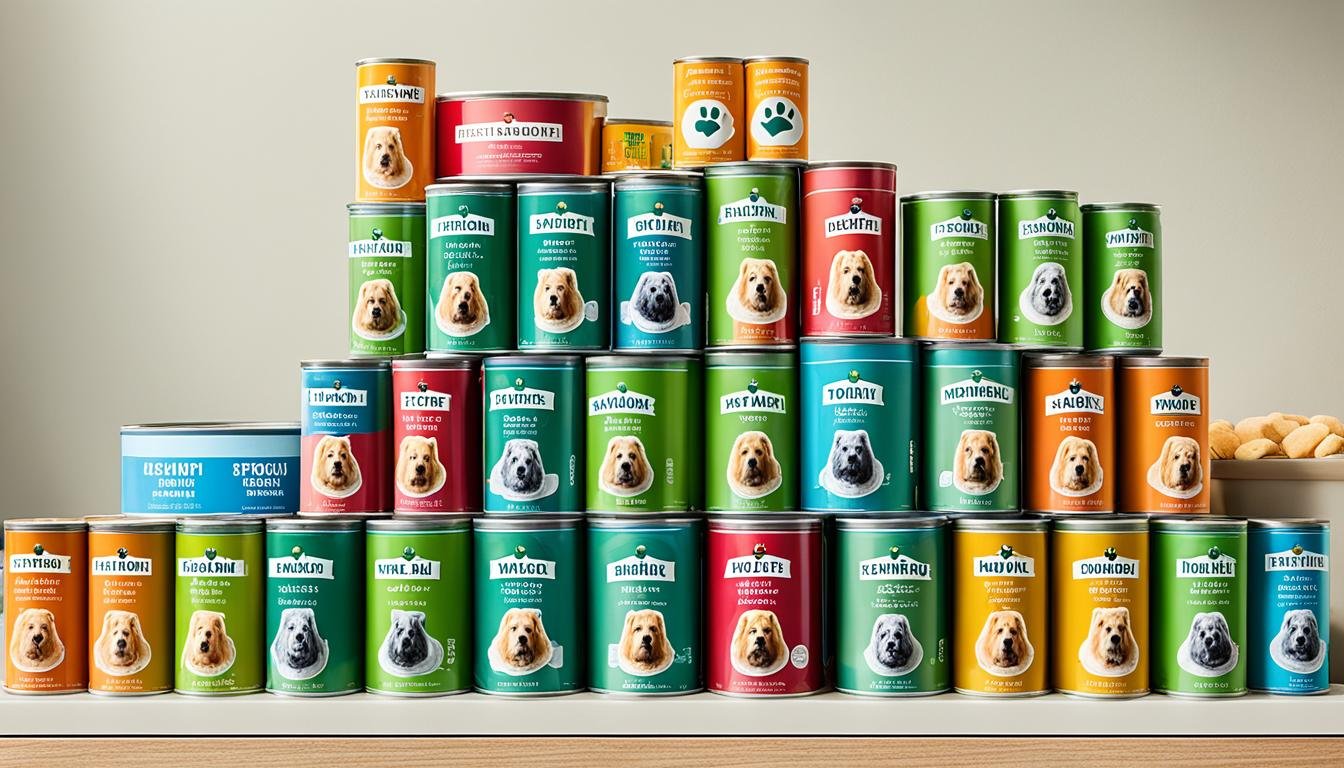Did you know that 90% of veterinarians recommend Open Farm, Merrick Limited Ingredient, and Merrick as the top dry dog food brands for 2024? As a dog owner, providing your furry friend with the best possible nutrition is crucial for their overall health and well-being. This comprehensive guide will explore the top vet-recommended dog food brands, helping you make an informed decision to keep your pup happy and healthy. From understanding your dog’s specific nutritional needs to addressing health concerns, we’ll cover everything you need to know to find the perfect food for your four-legged family member.
Key Takeaways
- Veterinarians recommend top brands like Purina Pro Plan, Hill’s Science Diet, Royal Canin, Iams, Eukanuba, Blue Buffalo, Merrick, and Wellness Core.
- Consider factors like your dog’s age, breed, and size when selecting the right food.
- Look for high-protein, low-filler options and avoid artificial preservatives or flavors.
- Carefully read ingredient lists to ensure your pup is getting the best nutrition.
- Consult your veterinarian for personalized recommendations on the ideal dog food for your furry friend.
Understanding Your Dog’s Nutritional Needs
Selecting the right type of dog food is a crucial first step in ensuring your furry friend receives the proper nutrition. Consider your pet’s current health, lifestyle needs, and any allergies when choosing between dry kibble, wet canned food, freeze-dried options, or raw diets. Dry dog food can be economical and convenient, while wet food offers excellent hydration for picky eaters. Freeze-dried formulas provide a fresh flavor, and raw diets can be healthy but require careful monitoring to avoid potential pathogens.
Decide on the Type of Food
When selecting the appropriate food for your pup, it’s essential to factor in their age, breed, and size. Younger dogs require higher protein levels to support their rapid growth, while senior canines may benefit from diets with fewer calories. Breed-specific nutritional needs can vary significantly, as a toy breed may have different metabolic demands than a giant dog. Additionally, larger dogs tend to burn through calories faster than smaller breeds, so their size should be a key consideration in your food selection.
Consider Age, Breed, and Size
Choosing a high-protein, low-filler dog food is crucial to ensure your canine companion receives all the essential nutrients they need while avoiding potential allergens or binding agents that could cause discomfort. Steer clear of dog foods containing artificial preservatives or flavors, as these additives can harm your furry friend’s digestive system. By selecting a diet that prioritizes quality protein and minimizes fillers, you can provide your pup with optimal nutrition and support their overall well-being.
Opt for High-Protein, Low-Filler Foods
Avoiding Harmful Ingredients
When feeding your furry friend, it’s crucial to avoid dog food that contains artificial preservatives or artificial flavors. These additives can sometimes harm your pup’s digestive system, so it’s best to steer clear of them altogether. Opt for natural, wholesome ingredients that provide your canine companion with the essential nutrients they need without any potentially harmful additives.
Steer Clear of Artificial Preservatives and Flavors
It’s always wise to carefully read the ingredient list when choosing dog food for your furry friend. You wouldn’t buy a form of food for yourself that showed an ingredient list written in a foreign language, and the same principle applies to your canine companion. Take the time to thoroughly review the ingredients and ensure you understand what each one means and any potential health problems or allergies it could cause your pup. By taking this extra step, you can feel confident that you’re feeding your dog the healthiest possible menu.
Read Ingredient Lists Carefully
By understanding the dog food ingredients and avoiding potential artificial preservatives in dog food and artificial flavors in dog food, you can provide your furry friend with a nutritious diet that supports their overall well-being. Carefully reading dog food labels and consulting with your veterinarian can help you make informed decisions when it comes to selecting the best food for your canine companion.
Consulting Your Veterinarian

If you’re unsure about what to feed your dog, the best course of action is to consult your veterinarian. They can provide tailored recommendations based on your pup’s specific needs, lifestyle, and any health concerns. Veterinarians are experts in canine nutrition and can help you navigate the overwhelming options to find the perfect food for your furry friend. Don’t hesitate to ask for their guidance – they’ll be more than happy to ensure your pup receives the best possible nutrition.
Top Vet-Recommended Dog Food Brands

Purina Pro Plan
Purina Pro Plan is a top-recommended dog food brand by veterinarians. This brand offers a variety of formulas that cater to different life stages, breeds, and health concerns. Purina Pro Plan is known for using high-quality proteins as the first ingredient and incorporating essential nutrients to support your dog’s overall well-being.
Hill’s Science Diet
Hill’s Science Diet is another vet-recommended dog food brand that has been trusted by pet owners and professionals for decades. Their formulas are designed to provide complete and balanced nutrition, with options tailored to specific life stages, breed sizes, and health needs. Hill’s Science Diet is praised for its use of premium ingredients and commitment to supporting your dog’s optimal health.
Royal Canin
Royal Canin is a renowned dog food brand that is highly recommended by veterinarians. Their formulas are developed by a team of veterinary nutritionists and are formulated to meet the unique nutritional requirements of different breeds, life stages, and health conditions. Royal Canin is known for its attention to detail and commitment to providing dogs with the precise nutrition they need to thrive.
Iams
Iams is a trusted dog food brand that is frequently recommended by veterinarians. Their formulas feature high-quality proteins, such as real chicken, as the first ingredient, along with essential nutrients to support your dog’s overall health and well-being. Iams offers a range of options tailored to different life stages, breed sizes, and specific health needs, making it a reliable choice for pet owners.
Eukanuba
Eukanuba is a vet-recommended dog food brand that focuses on providing optimal nutrition for your canine companion. Their formulas are designed to support various aspects of your dog’s health, including muscle development, joint health, and immune function. Eukanuba is known for its use of high-quality ingredients and its commitment to research-backed nutrition.
Blue Buffalo
Blue Buffalo is a highly regarded dog food brand that is often recommended by veterinarians. Their formulas feature real meat as the first ingredient, along with wholesome grains, fruits, and vegetables to provide a balanced and nutritious diet for your dog. Blue Buffalo is known for its commitment to using natural, high-quality ingredients and avoiding artificial preservatives, colors, and flavors.
Merrick
Merrick is a vet-recommended dog food brand that focuses on providing holistic, natural nutrition for your canine companion. Their formulas feature real, deboned meat as the first ingredient, along with a blend of whole grains, fruits, and vegetables to support your dog’s overall health. Merrick is praised for its commitment to using high-quality, traceable ingredients and for its selection of specialized diets for dogs with unique nutritional needs.
Wellness Core
Wellness Core is a dog food brand that is highly recommended by veterinarians for its commitment to providing nutrient-dense, grain-free formulas. Their recipes feature high-quality proteins as the primary ingredient, along with a blend of fruits, vegetables, and botanicals to support your dog’s overall well-being. Wellness Core is known for its focus on using natural, wholesome ingredients to promote optimal health and energy levels in dogs.
Addressing Specific Health Concerns
As a responsible dog owner, it’s crucial to consider your furry friend’s unique health needs when selecting their food. From managing weight to addressing sensitive stomachs and catering to large breed requirements, there are specialized dog food options that can make a significant difference in your pup’s well-being.
Weight Management
Obesity is a common issue among our canine companions, and it can lead to a host of other health problems, such as diabetes and joint issues. When choosing the best adult dog food for weight management, look for options labeled “for weight loss.” These formulas are designed to support your pup’s ideal body condition while providing all the necessary nutrients they need to thrive. Remember to prioritize balanced nutrition to ensure your dog receives the right vitamins, minerals, and proteins to maintain optimal health.
Sensitive Stomach
Some dogs may experience digestive issues or have sensitive stomachs, requiring a specialized diet. Veterinarians often recommend dog food formulas that are gentle on the digestive system, containing prebiotics, probiotics, and easily digestible ingredients to help soothe your pup’s tummy troubles. When dealing with a sensitive stomach, it’s essential to work closely with your vet to find the right food that meets your dog’s unique needs.
Large Breed Nutrition
Large breed dogs have different nutritional demands compared to smaller breeds. Their food should be formulated to support their increased caloric needs, as well as their bone and joint health. Veterinarians often suggest dog food options that are specifically designed for large or giant breeds, ensuring your furry friend receives the appropriate balance of nutrients to thrive.
Choosing the Right Food for Your Dog’s Life Stage
As your furry friend grows up, their nutritional needs change. Puppies require a diet that supports their rapid growth and development, with higher levels of protein and other essential nutrients. Veterinarians recommend choosing puppy-specific puppy dog food or dog food for puppies that cater to the unique requirements of growing dogs, promoting healthy muscle development, strong bones, and a robust immune system.
Puppy Nutrition
Puppies have different nutritional needs compared to adult dogs. Their growing bodies require a higher calorie and protein intake to support their rapid development. Look for puppy dog food or dog food for puppies that is formulated with these specific requirements in mind, ensuring your young pup receives the essential nutrients they need to thrive.
Adult Dog Diets
Once your pup reaches adulthood, their dietary needs shift to maintaining optimal health and energy levels. Veterinarians suggest selecting adult dog food or dog food for adult dogs that provides a balanced blend of carbohydrates, high-quality proteins, and essential vitamins and minerals to support your canine companion’s overall well-being. The specific nutritional requirements may vary depending on your dog’s breed, size, and activity level.
Senior Dog Foods
As our furry friends mature, their nutritional needs change yet again. Senior dog food or dog food for older dogs are formulated to address the unique health concerns that often arise in older dogs, such as joint issues, decreased activity levels, and changes in metabolism. Veterinarians recommend transitioning your dog to a senior-specific formula as they enter their golden years, ensuring they receive the tailored nutrition they need to maintain a high quality of life.
Transitioning to a New Dog Food
Gradual Introduction
When it’s time to switch your dog’s food, it’s essential to do so gradually. Abruptly changing your pup’s diet can cause digestive issues, so it’s best to mix the new food with the old, slowly increasing the ratio of the new food over the course of 7-10 days. This gradual approach allows your dog’s digestive system to adapt to the new formula, ensuring a smooth and comfortable transition.
Monitoring for Digestive Issues
Even with a gradual introduction of a new dog food, some dogs may experience digestive issues when switching to a new food. It’s important to monitor your pup closely for signs of discomfort, such as vomiting, diarrhea, or decreased appetite. If you notice any concerning changes, consult your veterinarian, as they can provide guidance on how to best address the situation and determine if an alternative food may be a better fit for your furry friend.
Conclusion
Providing your canine companion with the best possible nutrition is essential for their overall health and well-being. By understanding your dog’s unique nutritional needs, avoiding harmful ingredients, and consulting with your veterinarian, you can confidently choose the top vet-recommended dog food brands that will keep your furry friend thriving. Remember to consider factors like age, breed, size, and any specific health concerns when selecting the perfect food for your pup.
With the right diet, your canine companion will have the energy and vitality to enjoy all the adventures and cuddles life has to offer. Brands like Royal Canin, Purina, and Merrick are vet-recommended and have gained the trust of veterinary professionals for their quality, balanced nutrition, and tailored formulas. By prioritizing your dog’s health and selecting a premium, vet-approved food, you’re setting your furry friend up for a lifetime of happiness and well-being.
Ultimately, the key to choosing the best dog food lies in thorough research, open communication with your veterinarian, and a deep understanding of your individual pup’s unique needs. With this knowledge in hand, you can confidently provide your canine companion with the nourishment they deserve, ensuring they thrive and enjoy a long, healthy life by your side.
FAQ
What are the different types of dog food to consider?
You can choose from dry kibble, wet canned food, freeze-dried, or raw diets. Consider factors like your dog’s current health, lifestyle needs, and allergies when selecting the right option.
How do I choose the best dog food based on my dog’s age, breed, and size?
Younger pups require higher protein levels, while senior dogs benefit from fewer calories. Breed-specific and size-appropriate nutritional needs should also be taken into account.
What should I look for in a high-quality dog food?
Opt for dog food with high-quality protein and low fillers, avoiding artificial preservatives or flavors that can harm your pup’s digestive system.
Why is it important to read the ingredient list on dog food?
Carefully reviewing the ingredient list can help you understand what your dog is consuming and identify any potential allergens or health concerns.
When should I consult my veterinarian about my dog’s food?
It’s always wise to consult your veterinarian, as they can provide tailored recommendations based on your pup’s specific needs, lifestyle, and any health concerns.
What are some top vet-recommended dog food brands?
Veterinarians frequently recommend brands like Purina Pro Plan, Hill’s Science Diet, Royal Canin, Iams, Eukanuba, Blue Buffalo, Merrick, and Wellness Core.
How can I address my dog’s weight management or sensitive stomach issues?
Look for dog food labeled “for weight loss” or formulas that are gentle on the digestive system and contain prebiotics, probiotics, and easily digestible ingredients.
What should I consider when choosing dog food for large breed dogs?
Large breed dog food is formulated to support their increased caloric needs and promote healthy bones and joints.
How do the nutritional needs of puppies, adult dogs, and senior dogs differ?
Puppies require higher levels of protein and essential nutrients to support their rapid growth and development. Adult dog food provides a balanced blend of carbohydrates, proteins, and vitamins to maintain optimal health. Senior dog foods address the unique health concerns often seen in older dogs.
How should I transition my dog to a new food?
It’s crucial to introduce the new food gradually, mixing it with the old over the course of 7-10 days, to allow your dog’s digestive system to adapt.
What should I do if my dog experiences digestive issues after switching to a new food?
Monitor your pup closely for signs of discomfort and consult your veterinarian if you notice any concerning changes, as they can provide guidance on how to best address the situation.







